A group of young people has recently opened up a "small world" in the mass media business of the Republic of China. Giving up enviable opportunities to work for leading newspapers in the big cities, the young journalists have returned to their hometowns to publish small newspapers in communities which are largely neglected by the national newspapers. Today, as the nation is trying to strengthen cultural development, their efforts for "grass roots" development are receiving praise from all quarters.
Community papers have a history of about 30 years in the United States. At present some 10,000 community periodicals are published in the U.S. which report on regional news and function as a mouthpiece for local people. Often they are more valued in small communities than the leading national newspapers.
Though the community newspapers are still new in Taiwan, the encouragement of scholars in mass communications coupled with the down-to-the-earth dedication of the young newsmen, has enabled them to flourish. They have become a new force in mass communications, and opened up a new page in the history of Chinese journalism.
Since their business is relatively small, community newspapers are inspired by motives other than making money. National newspapers cannot report local and specialized news because of limited space. As a result, events and people in small places have been largely ignored. Though national newspapers may sometimes set aside a page to cover county news, the stress is on sex and violence. They cannot meet the needs of small communities, nor can they cause local residents to identify themselves with their home areas, let alone persuade them to join in community development.
In order to boost the grass-roots development of society, and to accelerate national modernization, the scholars in mass communication circles have often in the past called for the pubication of community tabloids to provide "missing link" in mass communications.
Famous columnist Yao Peng first put forward the idea of publishing community newspapers as early as 1951 in the first issue of Pao Hsueh Cha Chih (Journalism). The call was echoed by such leading scholars in journalism as Hsu Chia-shih, Pan Chia-ching and Yang Hsiao-jung. But the idea was only put into effect in 1973 when the Department of Journalism of the National Chengchi University transformed a college paper into a community tabloid called "Cha-Mei Report," as it covers the Taipei suburbs of Mucha and Chingmei.
The Meinung Weekly, first established as Today's Meinung in July of 1974, was set up by Huang Sen-sung, who graduated with a Master's degree from the Department of Journalism of the National Chengchi University.
Even in his junior year, Huang had started to show concern for the people of his hometown, Meinung, a small town in Pingtung County in southern Taiwan. He realized that a reformation in politics, progress in society, and the modernization of economics could not be achieved only by gathering views from intellectuals on some particular problems. Without the grass roots support, every effort would be in vain. He compared the situation to an iceberg whose main bulk remains under the sea. The idea of contributing his knowledge to his conservative hometown had been implanted.
Huang attributed his success to the encouragement of his teacher Yang Hsiao-jung, and inspiration from famous local choreographer Lin Hui-min. After eight issues, however, publication of the tabloid stopped, and was not resumed until three years ago. Today, Huang has set up an agricultural library for his townsfolk. His master's thesis, entitled "The corelation between village community papers and community development," and "The possibility of establishing newspapers for small groups of people in Taiwan," was based on his experiments at Meinung.
In the beginning, without money and help, Huang did everything himself: reporting, writing, editing, photographing, typing, printing, circulation, advertising and even delivery. During the past three years, his wife has helped him out by typing for him, and an old farmer, Chiu Chin-huei, writes and delivers manuscripts for him.
With 3,000 subscribers from among 50,000 people living in Meinung, the tabloid plays a major role in supervising regional administration, disseminating agricultural knowledge and reporting on the customs and people of the town. It has also inspired the establishment of an agricultural library, and sponsored seminars and art and cultural activities.
San Cheng Weekly, circulated in Tungshih, a small town surrounded by mountains in central Taiwan, came into being in October last year. Encouraged by local people, the two young staff members, Wu Cheng-kun and Wu Kuo-cheng, enlarged their coverage to the neighboring towns of Shihkan, Hsinshe, Cholan, and Hoping.
In the beginning, people were suspicious of and reluctant to subscribe to the tabloid. These young journalists had to contend with financial problems. They refused to accept any money from their families or from any patrons, however, for fear that they may be compromised.
With growing support from its readers, the paper now introduces up-to-date agricultural techniques and guidance to farmers. For instance, it frequently carries information on wholesale fruit market and interviews experienced farmers to discuss such matters as fertilizer, and fruit storage. Through helping fruit growers to register themselves as suppliers with local farmers' associations, it has saved them from having to go through the cumbersome application procedures before they can ship their products to northern Taiwan.
"In addition to agricultural news, we report stories of human interest and local legends and history. We keep this a clean paper. You won't find any exaggerated or sensational reports in it," said Publisher Wu Cheng-kun. In order to inspire cultural advancement in the small town, the Wus have sponsored concerts, art exhibitions or assisted the China Youth Corps in organizing wholesome activities.
Inaugurated in September last year, Hsin Tai Pao, circulated in Hsinchuang and Taishan in the suburbs of Taipei, now has some 4,000 subscribers. With a degree in mass media from Fu Jen Catholic University, experience in editing college newspapers, and financial aid from his sister, Lin Yu-yuan, publisher of the paper, chose the two satellite towns of Taipei to show his talent, because he worked as a mechanic at a garage in Hsinchuang for six years.
Since the two satellite cities have many factories, the tabloid reports on industrial affairs, social activities in factories, or holds seminars on factory problems for workers. The paper also makes frank suggestions on possible improvements to the environment. At its suggestion, such construction works as widening roads, building bridges and a post office have been accomplished rapidly. Lin said that the tabloid also reports on ancient relics, and people and events in the countryside. He hopes that the newspaper will serve as a bridge between the government and people, and will maintain its own style.
The Shuang Ho Saturday News, established in April of 1978, covers the Taipei suburbs of Yungho and Chungho. Its publisher Wu Chun, who graduated from the Department of Journalism of the National Chengchi University with an M.A. degree, manages the newspaper as a business.
Using quality paper and printing techniques, the tabloid covers matters concerning food, clothing, living standards, transportation and culture in the two towns. Wu takes a strong commercial and advertisement-oriented approach to his publication. In addition to the editorial department, the tabloid has a planning and management departments to be in charge of circulation, sales and advertising. As a result, the paper has become the forum of opinion for people in the two towns, and provides a blueprint for other community newspapers on how to operate at a profit.
In September 1979, Wu published the Taipei Saturday News to cover literary and general news for Taipei residents. To help raise the quality of life, the Taipei Saturday News has participated in the planning and holding of such activities as performances by the Cloud Gate Dance Troupe in local communities and the "Good Morning, Jog" movement.
With 10,000 subscribers for Shuang Ho and double of that for the Taipei Saturday News, the sister publications are growing rapidly.
Through the efforts of these young journalists, who are devoting their careers to improving community life, the voices of people at every level of society are being heard throughout the nation.
[Picture Caption]
1. Four members of the Meinung Weekly. They are "old farmer" Chiu Chin-huei, Huang's wife Lin Ching-hsuan, Huang and Hsu Kuan-yao. 2. A view of Meinung town. 3. Huang at work. 4. The old gate of Meinung. 5. The Meinung agricultural library.
1. Wu Cheng-kun and Wu Kuo-cheng publish San Cheng Weekly in Tungshih. 2. Tungshih is a small town surrounded by mountains in central Taiwan. 3. Wu frequently introduces up-to-date agricultural techniques and offers guidance to farmers. 4. Human interest stories and local legends and history are favorites for old townsfolk.
1. Hsin Tai Pao is published by graduates of Fu Jen Catholic University. 2. Postman Chen Yi-hsiung volunteers to be press correspondent for the paper. 3. Workers at a car factory look at Hsin Tai Pao pasted on wall. 4. Whenever a new issue is circulated, subscriptions pour in.
Left: Wu Chun, publisher of the Shuang Ho Saturday News, and Taipei Saturday News. 2. A corner of the typing room of Taipei Saturday News. 3. Commercialized administration is a unique feature of the two tabloids of Shuang Ho and Taipei Saturday News. Picture shows an editorial meeting.
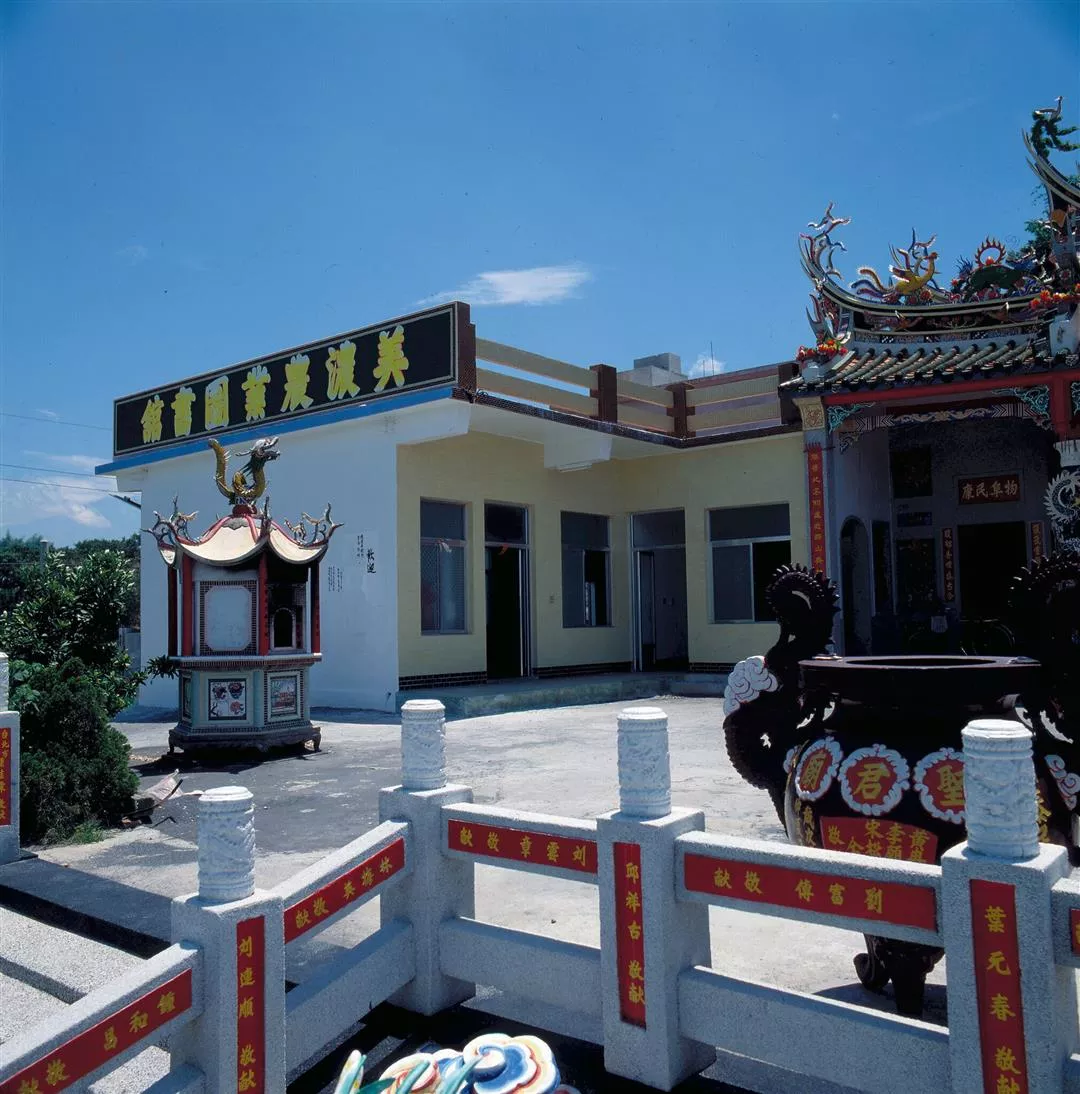
The Meinung agricultural library.
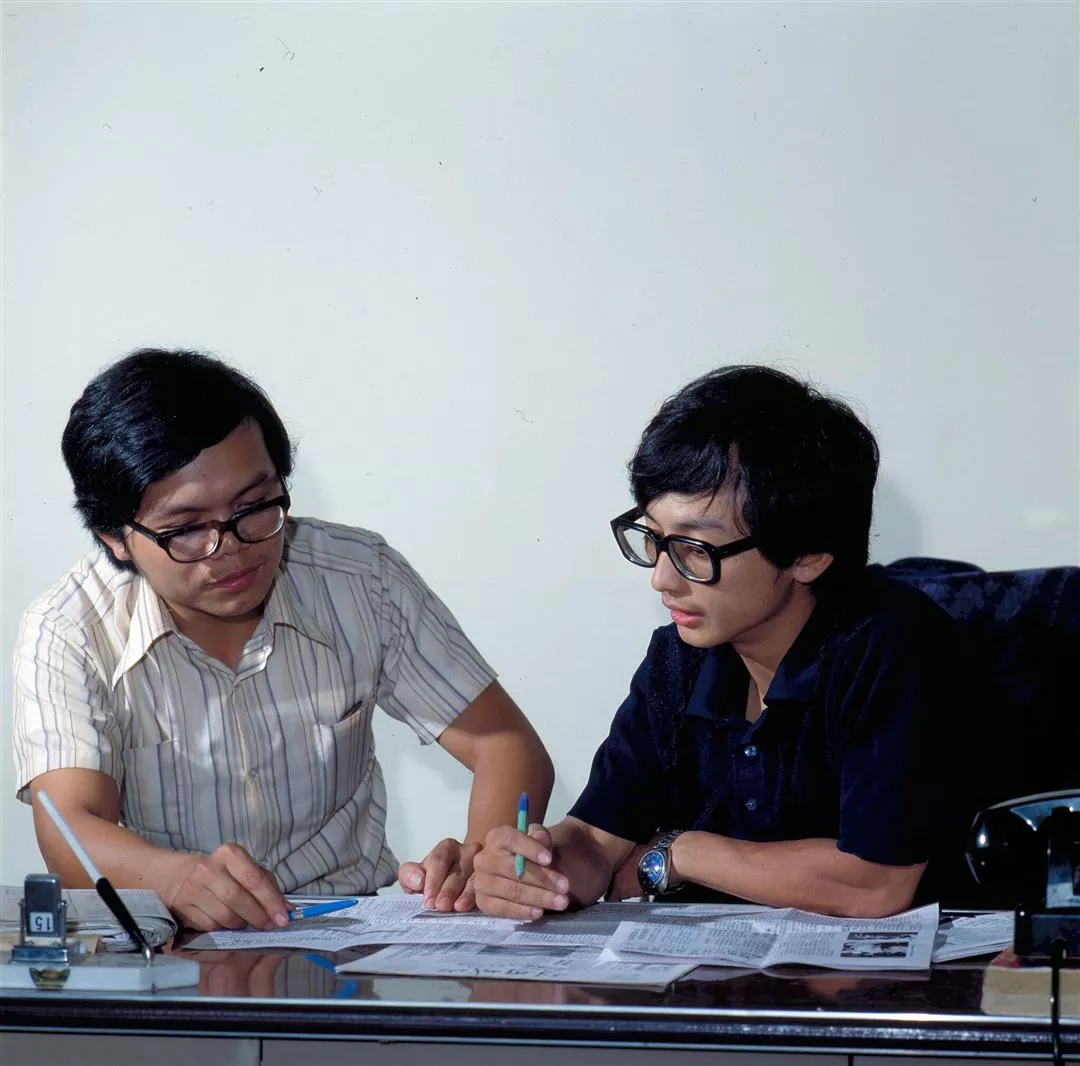
Wu Cheng-kun and Wu Kuo-cheng publish San Cheng Weekly in Tungshih.
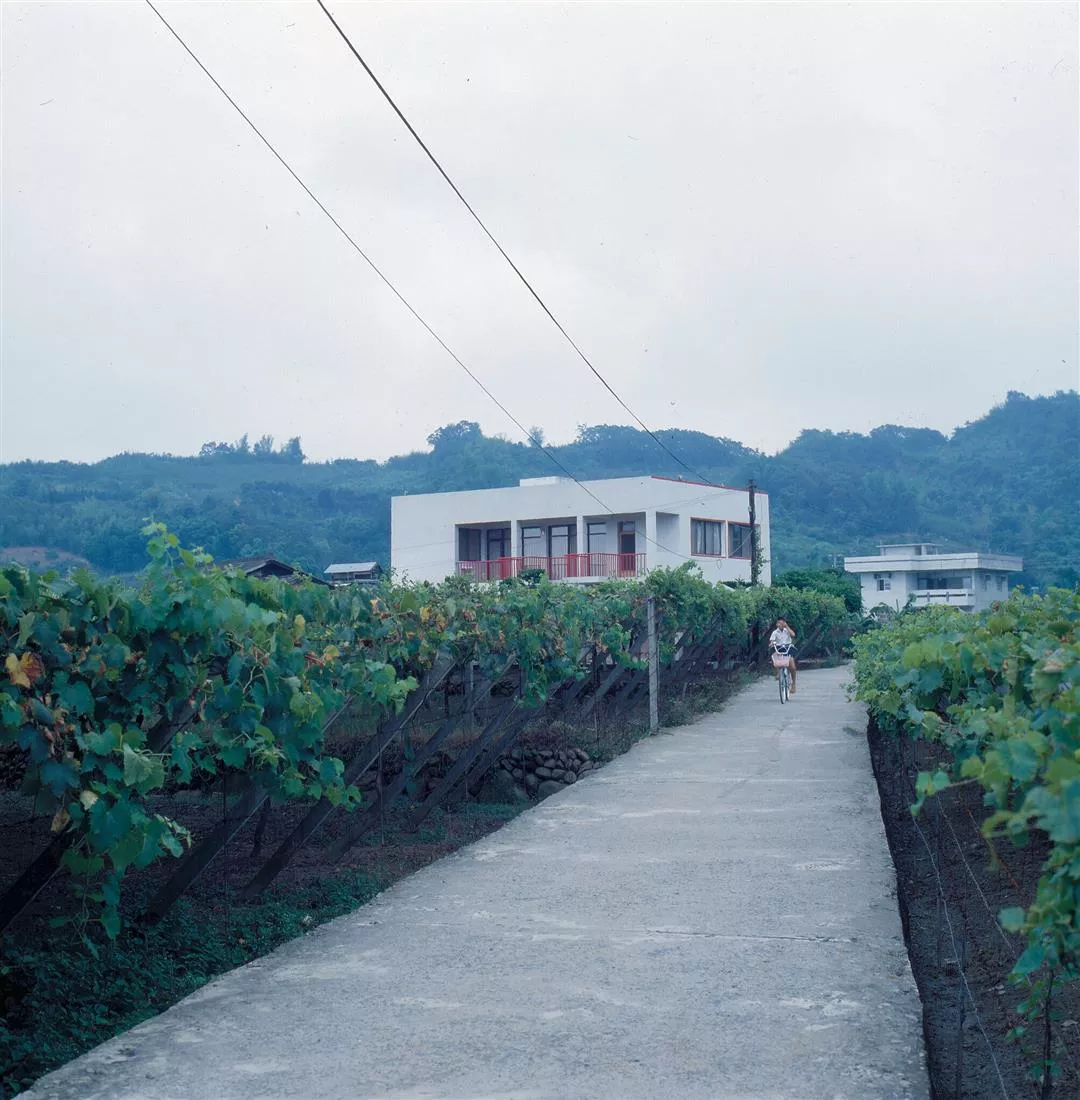
Tungshih is a small town surrounded by mountains in central Taiwan.
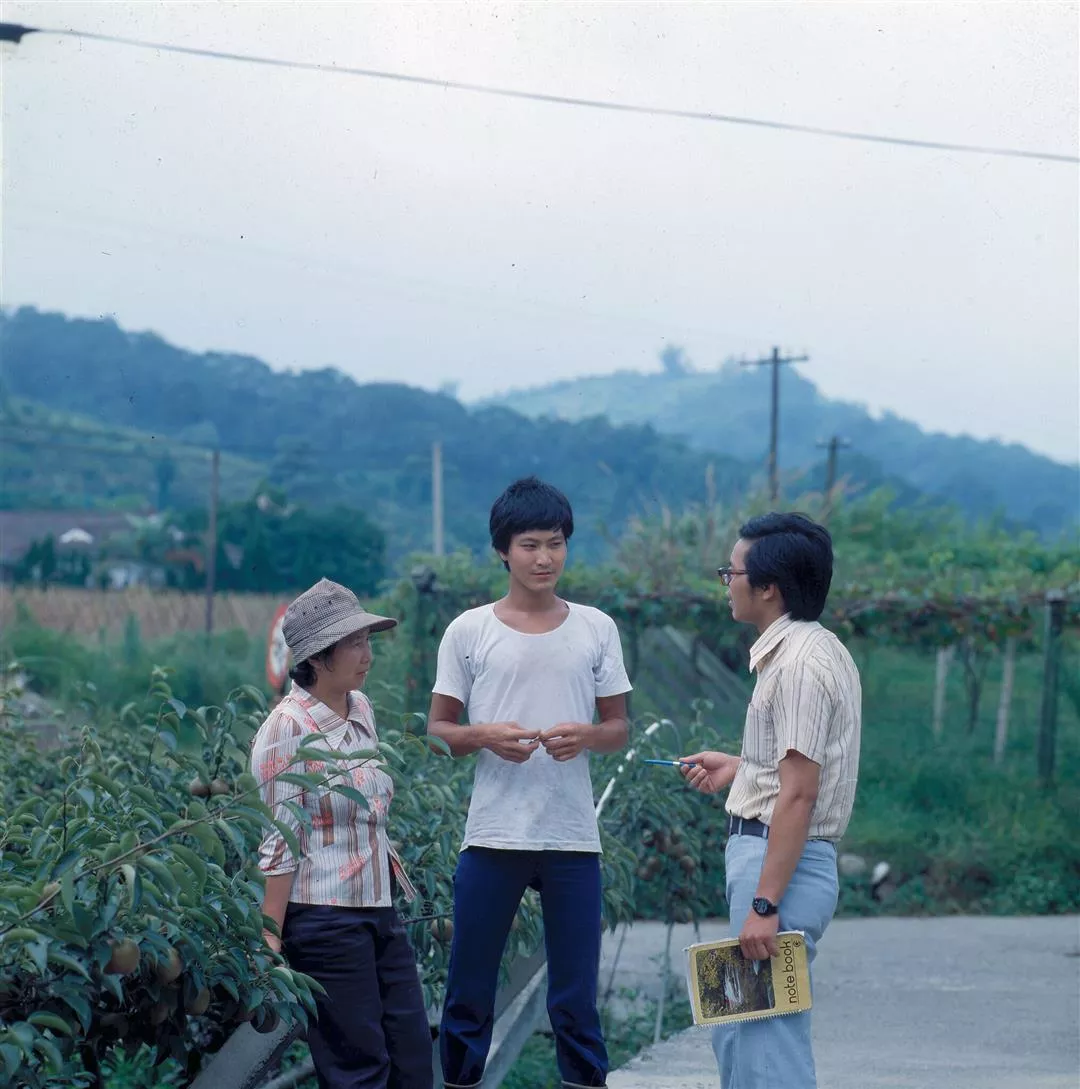
Wu frequently introduces up-to-date agricultural techniques and offers guidance to farmers.
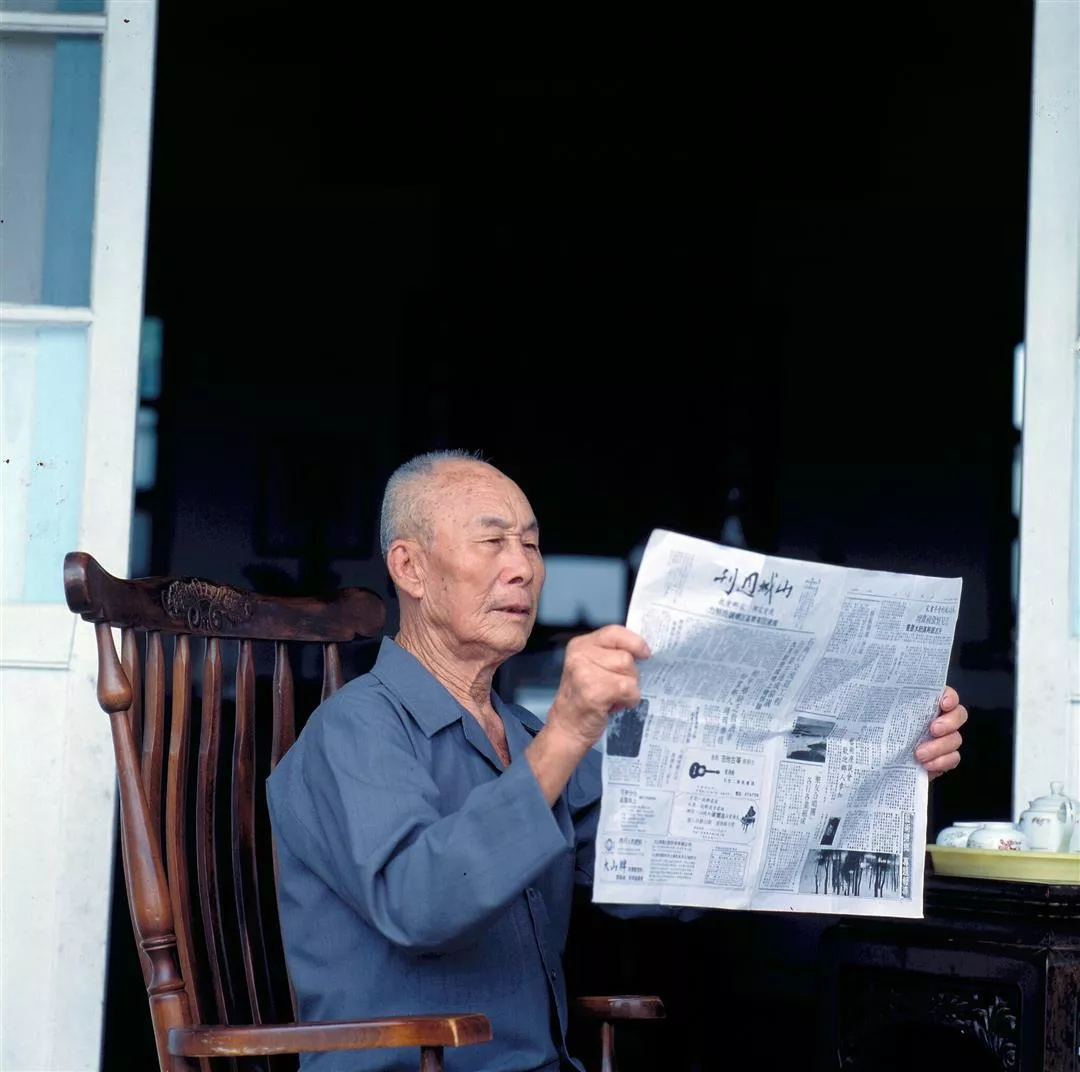
Human interest stories and local legends and history are favorites for old townsfolk.
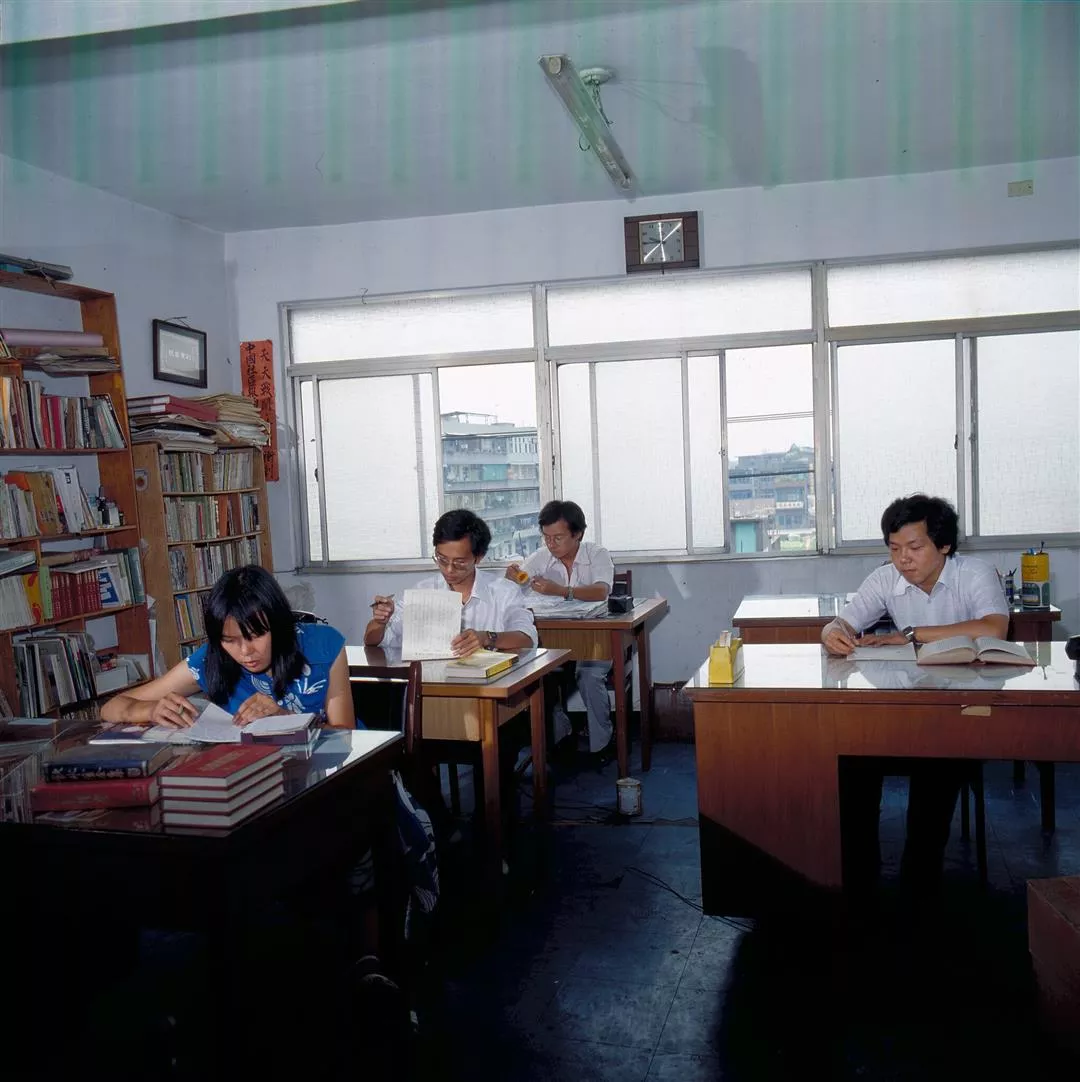
Hsin Tai Pao is published by graduates of Fu Jen Catholic University.
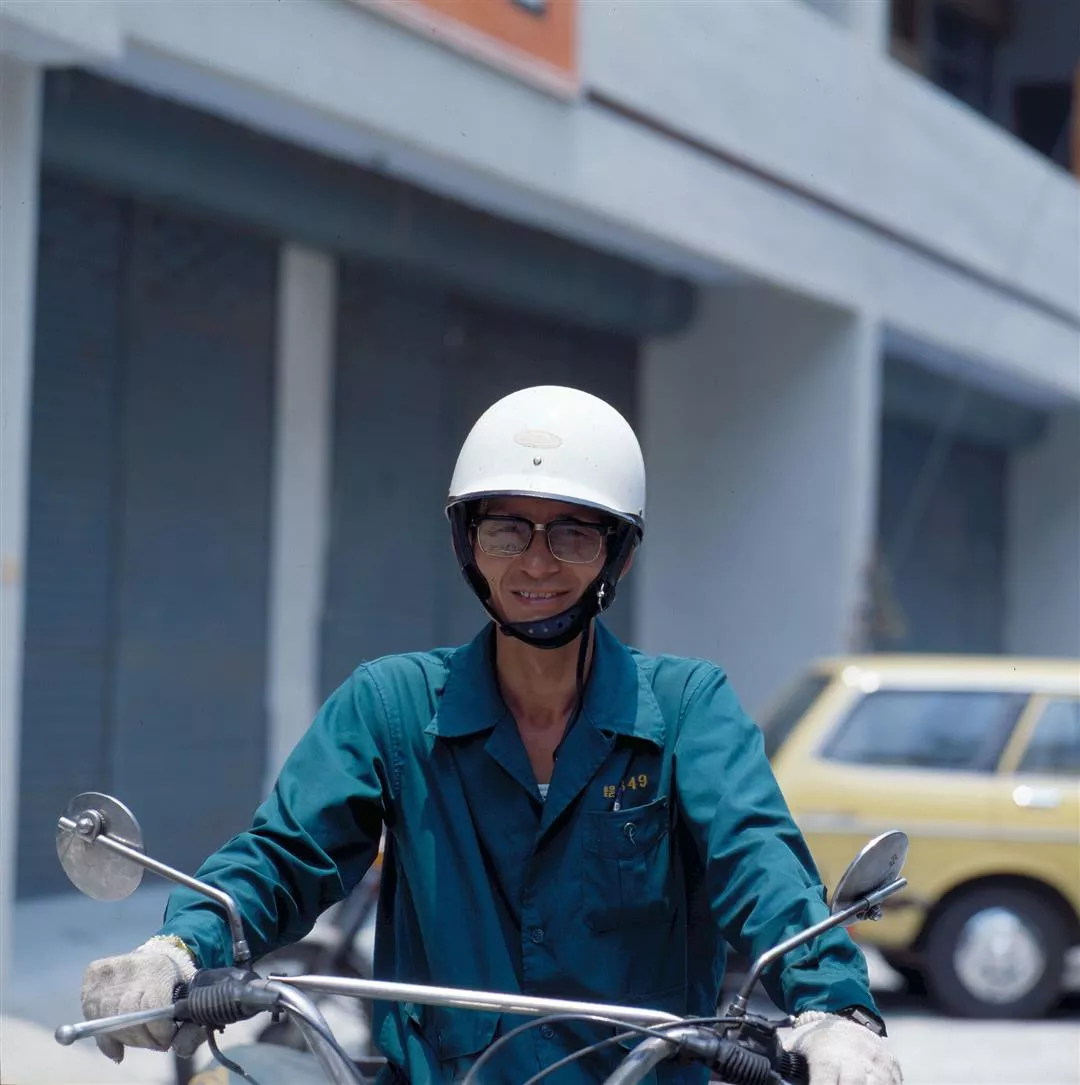
Postman Chen Yi-hsiung volunteers to be press correspondent for the paper.
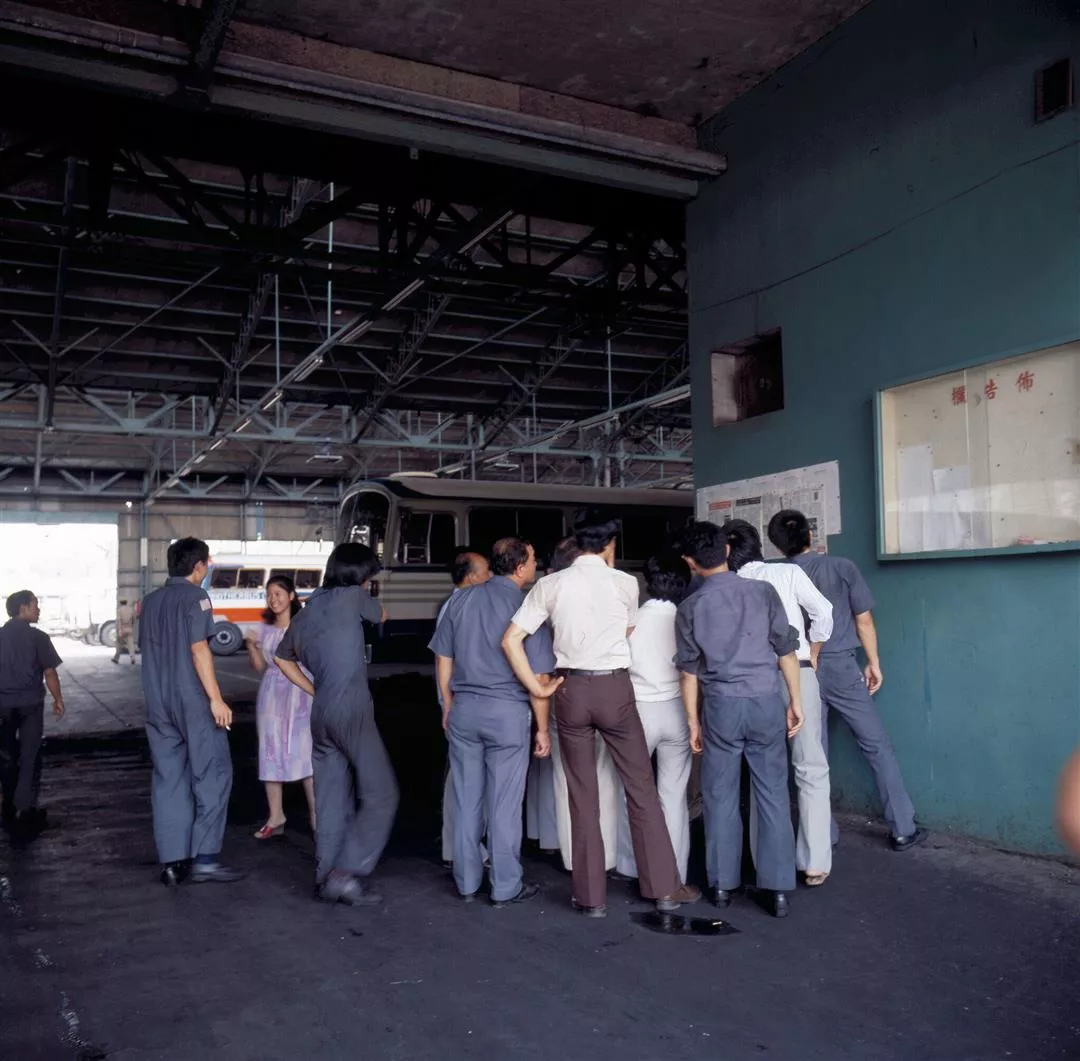
Workers at a car factory look at Hsin Tai Pao pasted on wall.
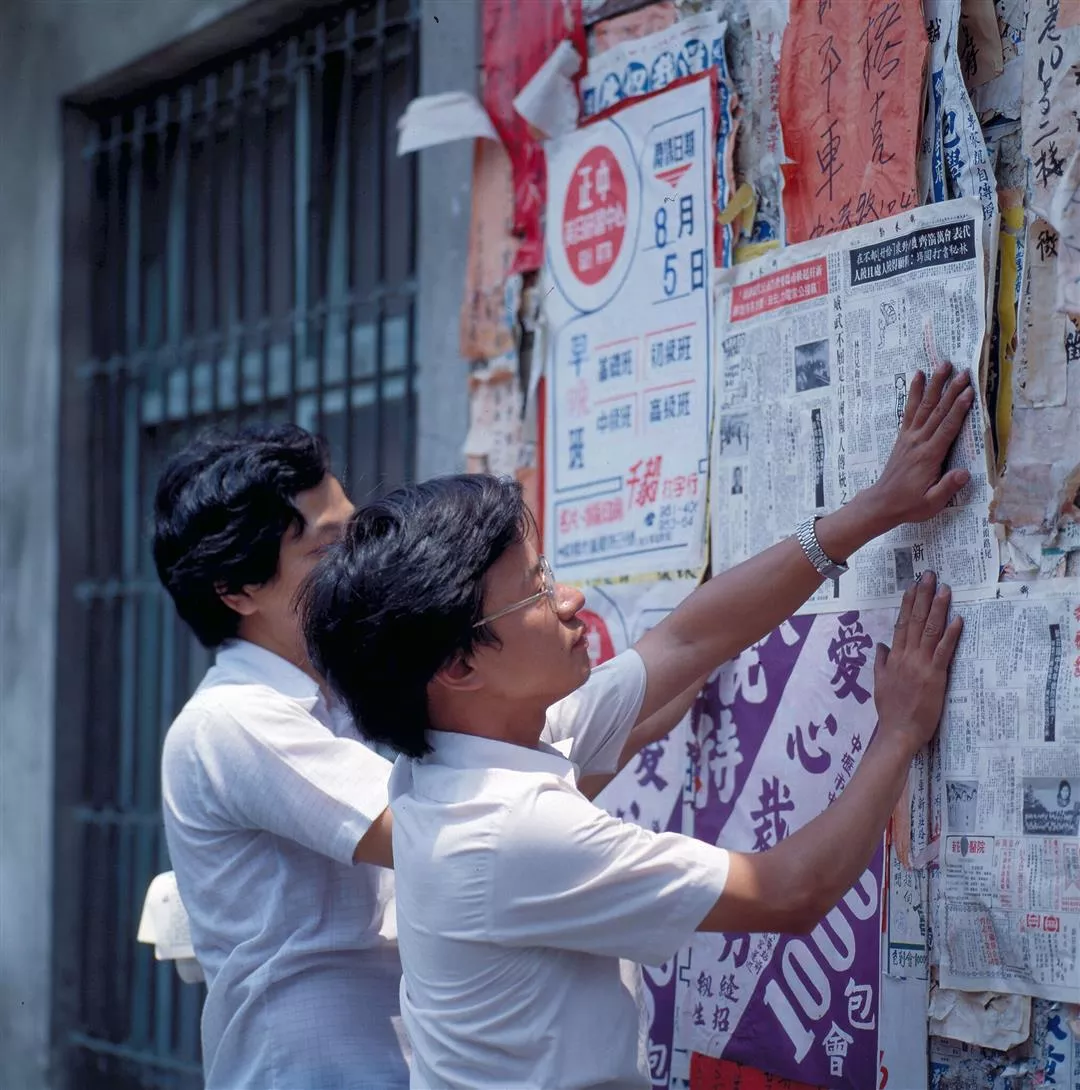
Whenever a new issue is circulated, subscriptions pour in.
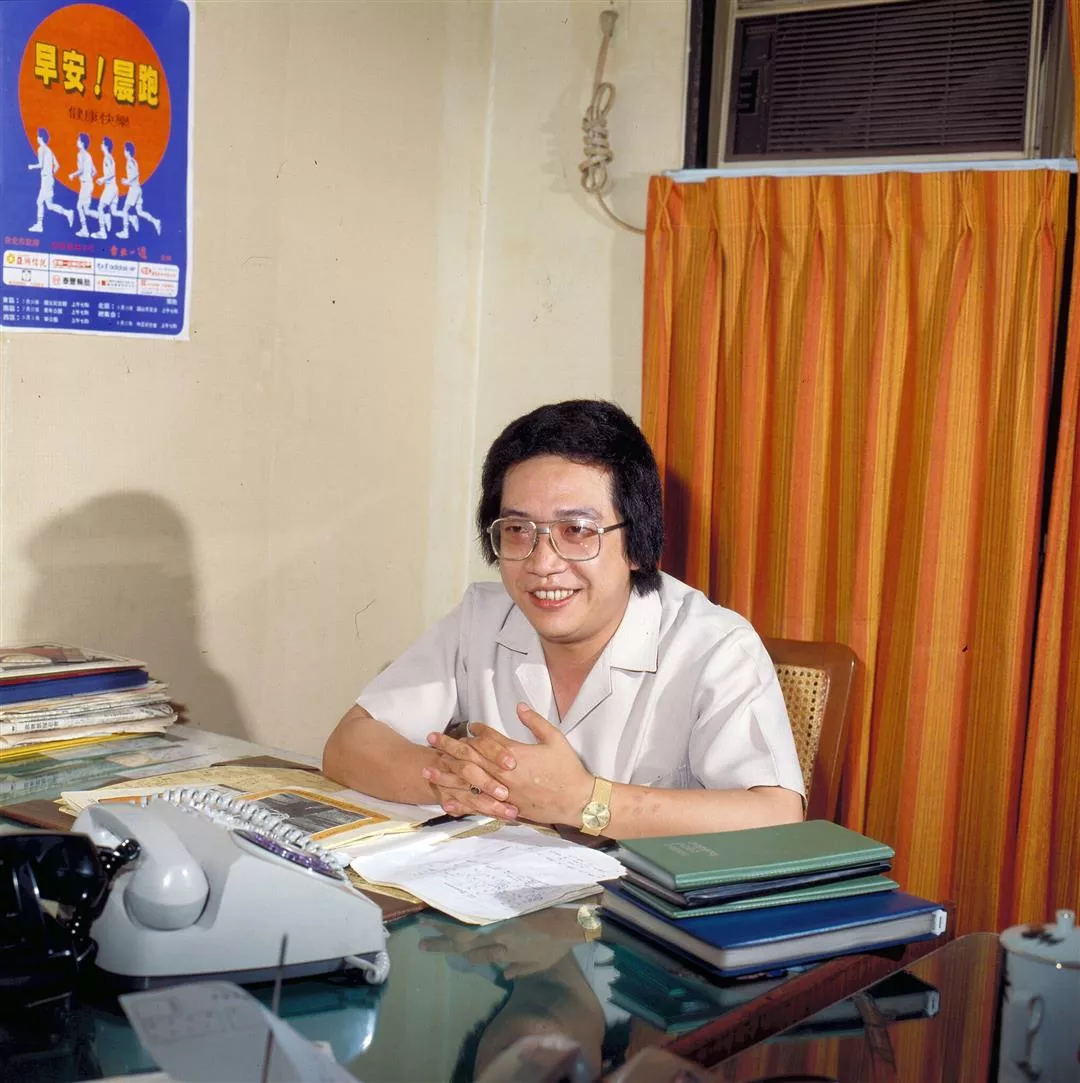
Wu Chun, publisher of the Shuang Ho Saturday News, and Taipei Saturday News.
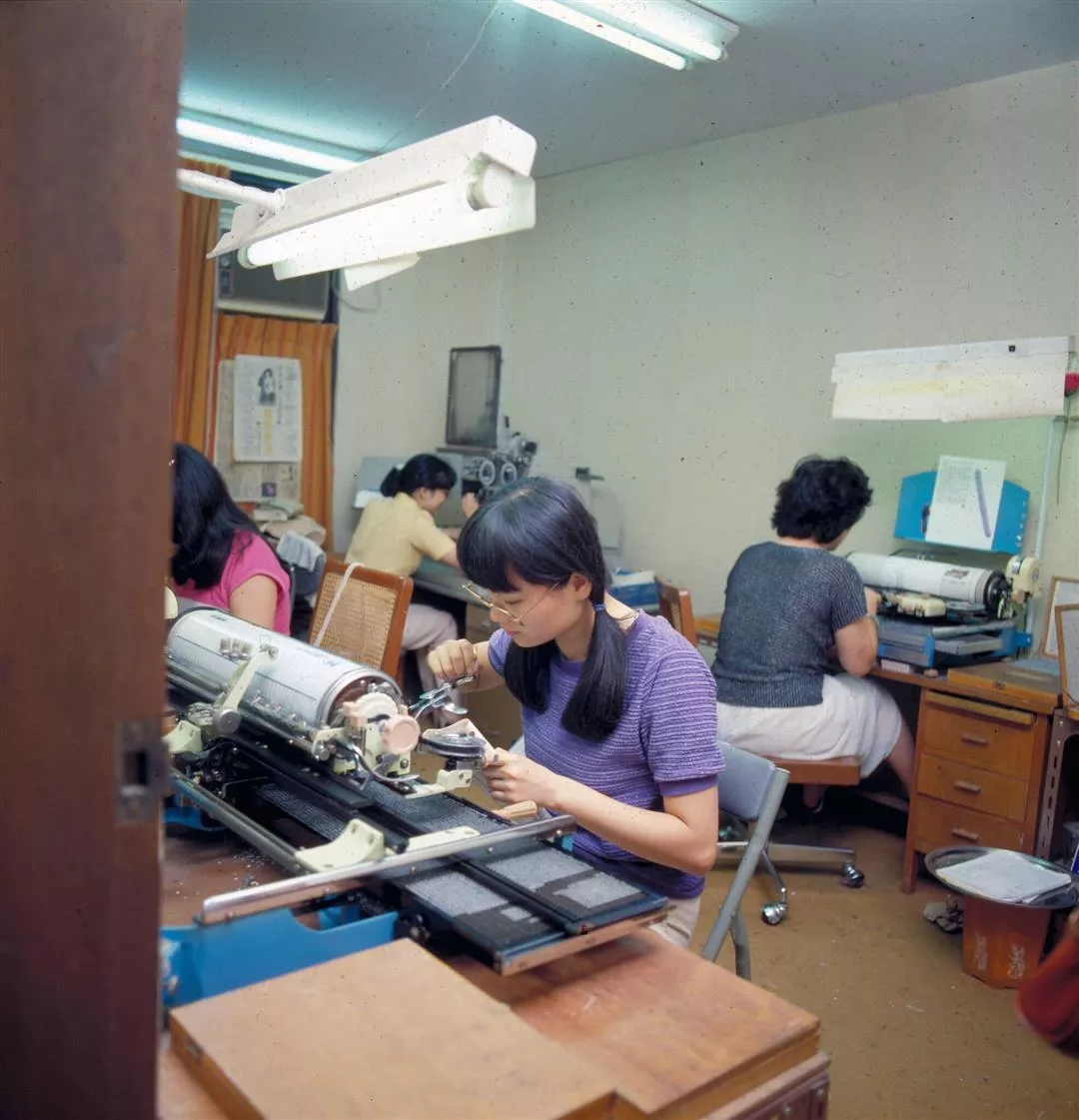
A corner of the typing room of Taipei Saturday News.
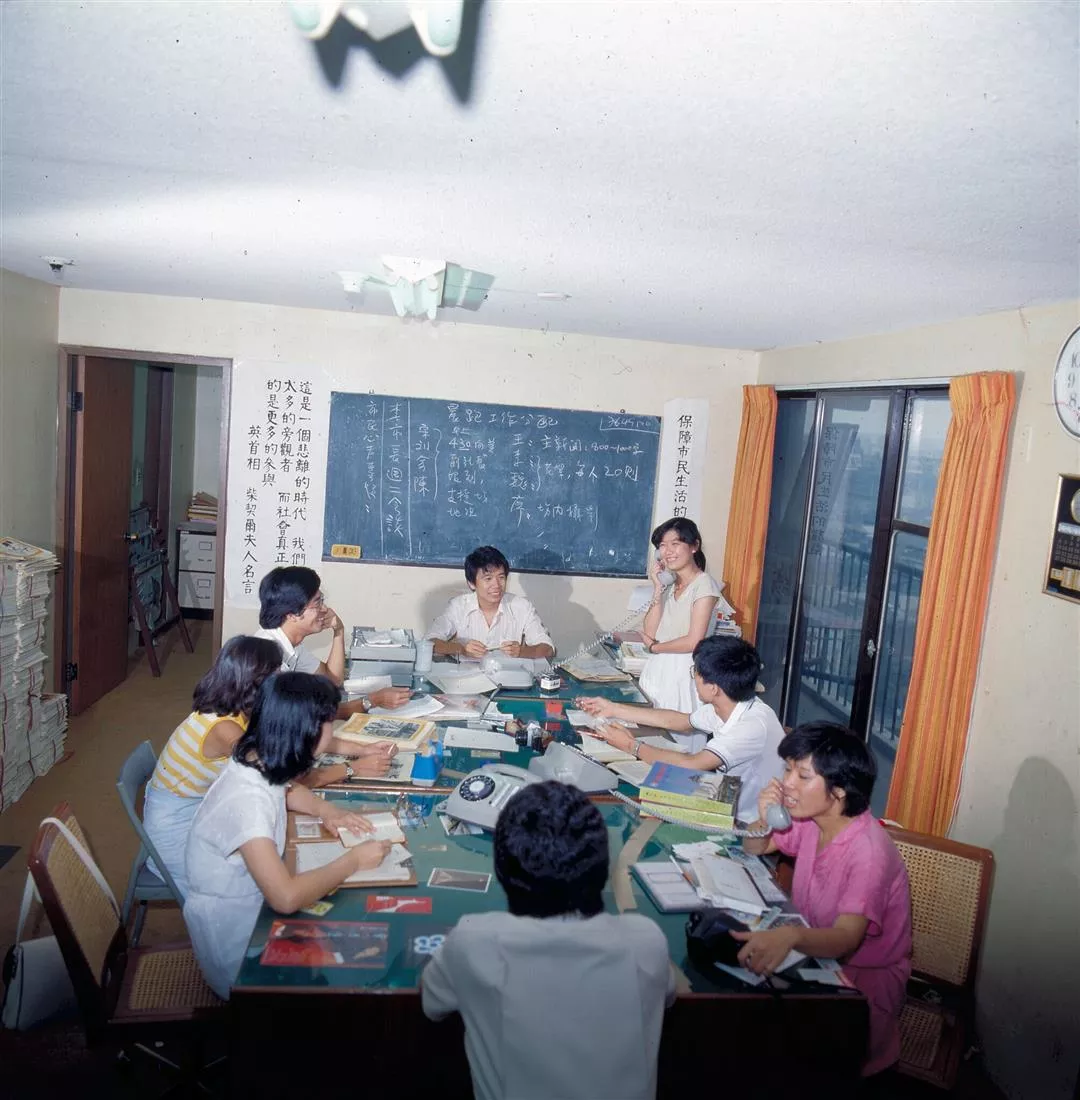
Commercialized administration is a unique feature of the two tabloids of Shuang Ho and Taipei Saturday News. Picture shows an editorial meeting.